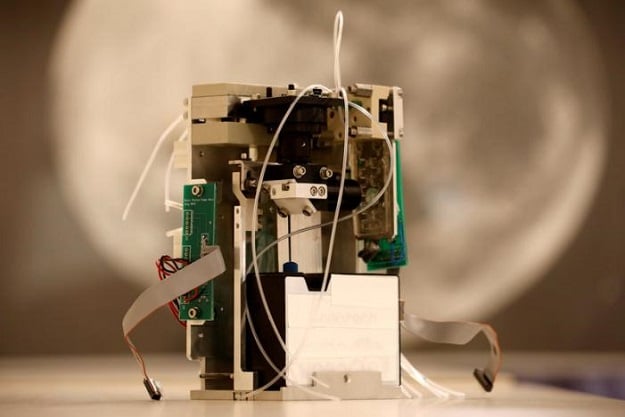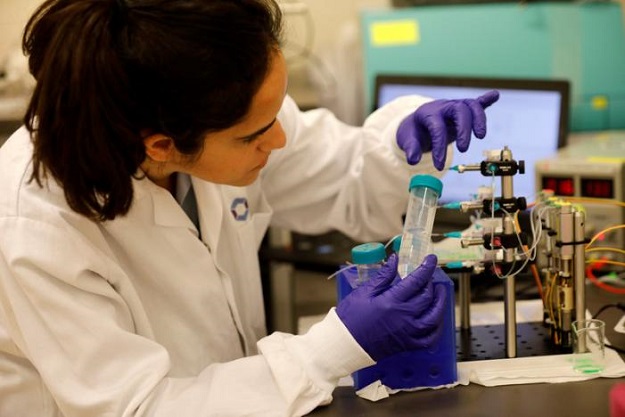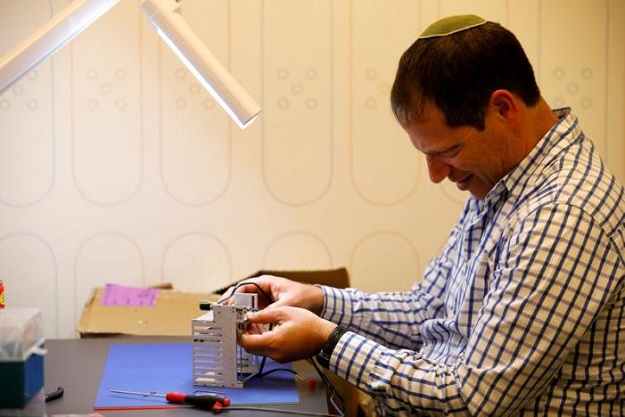
HERZLIYA: Orbiting the earth at more than 500 kilometers, a tiny satellite with a laboratory shrunk to the size of a tissue box is helping scientists carry out experiments that take gravity out of the equation.
The technology was launched into space last month by SpacePharma, a Swiss-Israeli company, which on Thursday announced that its first experiments have been completed successfully.
 A technician works in a laboratory at Israeli-Swiss company SpacePharma's research and development site in Herzliya, Israel March 14, 2017. REUTERS/Amir Cohen
A technician works in a laboratory at Israeli-Swiss company SpacePharma's research and development site in Herzliya, Israel March 14, 2017. REUTERS/Amir CohenIn space, with hardly any interference from earth's gravity, cells and molecules behave differently, helping researchers make discoveries in fields from medicine to agriculture.
NASA releases incredible animations of star exploding with energy of 100 million suns
Nestle turned to zero gravity - or what scientists refer to as microgravity - to perfect the foam in its chocolate mousse and coffee, while drug makers like Eli Lilly have used it to improve drug designs.
Usually experiments are sent up to the International Space Station and carried out with the help of astronauts, or they are conducted on parabolic airplane flights that enjoy short bursts of weightlessness. SpacePharma says its miniature lab is a new way for researchers to work in micro-gravity for extended periods.
 An employee works on a miniature laboratory at Israeli-Swiss company SpacePharma's research and development site in Herzliya, Israel March 14, 2017. REUTERS/Amir Cohen
An employee works on a miniature laboratory at Israeli-Swiss company SpacePharma's research and development site in Herzliya, Israel March 14, 2017. REUTERS/Amir Cohen"Everything can be done remotely while the system is in outer space," said founder Yossi Yamin. "We upload the link with the command files to the lab and the experiment takes place."
Clients then receive data and images directly from the experiments, which are carried out on custom-built glass chips and can be run multiple times to test different reactions.
Seven Earth-like planets discovered around single star
The satellite currently in space holds four experiments, the first being done for a German research institute. A second launch, also with four experiments, is scheduled for August and includes research for a top tier pharmaceutical company, Yamin said.
By next year he hopes to begin sending up satellites that each hold some 160 experiments.






















































COMMENTS
Comments are moderated and generally will be posted if they are on-topic and not abusive.
For more information, please see our Comments FAQ